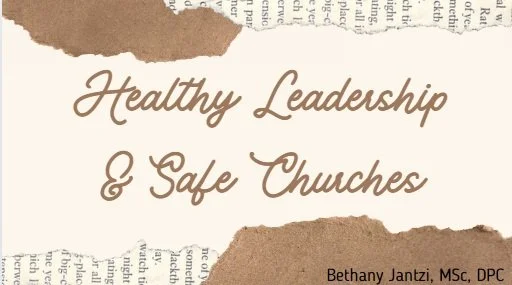Coercive Control Education & Consulting
Education.
You can’t prevent what you don’t understand.
Workshops, Presentations, & Lectures for:
Mental Health Practitioners & Clinicians
Church Ministry Leaders
Psychology, Social Work, & Police Foundations Programs
Non-Profits & Advocacy Groups
Student Life Groups
Faith-Based Organizations (Camps, High Schools and Universities)
Pastoral Ministry & Leadership Students
High School Health Classes
Bethany took a potentially heavy topic and appropriately tailored it to the audience. Her delivery and engagement helped navigate the discussion and remove any uncomfortableness, making it digestible and memorable for participants.
Bethany’s sensitive approach created a safe place for some participants to explore and deeper understand where coercive control may have impacted their life. Everyone left with a deeper understanding and awareness.
-Jennifer & Jeff Weston, The Net
“
Workshops
Personal Consultation.
Helping you find clarity in all of the confusion.
No one deserves to feel manipulated, trapped, obligated, or guilted into staying in an environment that is harmful.
Every human being deserves to make choices free from pressure, coercion, and fear.
You don’t have to question things by yourself. You don’t have to be alone in the confusion. Please reach out. You deserve it.
Struggling to makes sense of a your experiences in a personal relationship?
Does your inner world feel marked by confusion, guilt, obligation, or fear? Do you feel like you are losing your sanity or constantly walking on eggshells? Do you feel like you are constantly trying to keep the peace and starting to wonder if it’s actually not you that’s the problem?
Or in a workplace, group, or faith community?
Do you feel like you joined a group, community, or movement that is not what you were led to believe it was? Are you struggling to understand why you continually say yes, when you actually want to say no? Are you concerned there may be deception or manipulation at play in your faith community? Does it feel unsafe to ask questions or express sincere doubts?
Are you worried about a friend or family member’s involvement in a specific group, relationship, or organization?
Has a person you were once close to cut you out of their life with little explanation? Are you concerned about the behavioural and psychological changes you see in a family member? Do you see red flags in a friend’s relationship, but they claim you just don’t understand?
*Please note: While I am formally trained as a therapist and my approach to engaging with clients is influenced by this, consultation and coaching is NOT therapy or a replacement for therapy.
Professional Consultation
Conceptualizing and evaluating coercive control.
Are you in the legal field, law enforcement, leadership, a helping profession, or a teacher?
Coercive control often presents in nuanced ways making it challenging to detect. Understanding the dynamics of coercive control helps law enforcement, case workers, teachers, helping professionals, and legal professionals identify victims who might not present with obvious signs.
Coercive control is a growing area of legal concern, and having a specialist is invaluable in cases involving domestic abuse, human trafficking, elder abuse, or child custody disputes.
By recognizing the tactics of coercive control, evidence can be gathered that builds a stronger case against perpetrators. Knowledge of coercive control can also help law enforcement identify situations that could escalate to violence before it happens. Understanding the psychological impact of coercive control on victims is crucial. This translates to a better understanding of witness testimony, victim behavior, and the overall impact of the abuse.
Let me assist your team to identify subtle signs of coercive control, analyze victim statements, and gather evidence to support your case.
“Coercive control is one of the best indicators we have for lethality. It is crucial that we train providers and responders to be able to evaluate for this nuanced and often subtle pattern of control and domination.”







